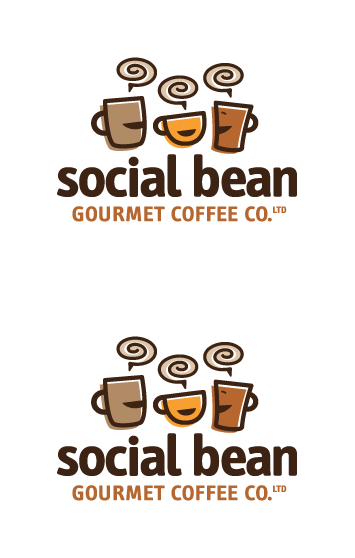Perks at Work
Workers rely on coffee to get through the workday because of its many benefits for mood and performance.
Coffee is important to business owners and managers because it’s important to workers. According to a US national survey, three out of five workers surveyed felt motivated to do their best work when provided with small perks like free beverages, and small perks made almost half of workers feel more valued.
Studies have shown that coffee not only significantly reduced the number of errors that workers made, but also improves workers speed, and accuracy in the performance of logical reasoning.
In addition to making workers happier and more focused, coffee in the workplace can impact the strength of social groups at work. This is significant because the strength of an individual’s social group in the workplace has been shown to improve productivity, and drinking coffee together at the workplace (instead of taking individual off-site breaks) strengthens groups.
Environmental Perks
The popularity of the viral ad campaign Kill the K-Cup is just one example of the negative press brands like Keurig have been on the receiving end of in recent years. In a short, horror-film-style clip, the campaign depicts a world taken over by discarded K-Cups, claiming that in 2014 enough K-Cups were discarded to circle the earth 10.5 times.
The environmental cost of single-serve coffee brewers has become a matter of public concern in recent years.
Boston-based inventor John Sylvan, who pioneered the K-Cup, has expressed that he regrets his invention. He envisioned K-Cups replacing trips to the coffee shop and disposable coffee cups, balancing out the environmental cost of convenient coffee. He never imagined that single-serve brewers would replace traditional coffee makers, adding significantly to the problem of disposable coffee packaging. Sylvan himself brews traditional coffee because of both the environmental and monetary cost involved with Pod type single-serve machines.
Keurig says that it will start selling recyclable K-Cups later this year, but the new recyclable cups will only make up a fraction of its supply. The long-awaited recyclable K-Cup is composed of polypropylene, and while it is recyclable, it’s hardly environmentally friendly. Because the cups will not be compostable or recyclable, Keurig is still planning to sell billions of pieces of disposable plastic each year. Even if consumers make the effort of peeling off the aluminum tops of each K-Cup used (a messy process), it’s unclear whether or not recycling centers, which process huge amounts of plastic, metal, paper, and trash, will be able to capture and sell for a profit so many tiny, individual K-Cups. Darby Hoover, senior resource specialist at the Natural Resources Defense Council notes that recycling does not offset the environmental cost of making coffee pods in the first place, which requires energy, materials, chemicals, water, and transportation. She calls consumers to “re-evaluate the role of packaging in our lives” and remarks that “we can make simple choices that reduce our environmental impact.
Cost-saving Perks
It is estimated that off-site coffee trips could cost employers $1,563 of work time per year for every employee who makes a daily coffee trip.
When employers provide coffee at work, workers don’t have to waste valuable work time leaving the office to get their coffee fix. Three out of four employed adults’ surveyed spent time purchasing coffee or tea outside of the office.
Marketing research firm Packaged Facts rates coffee’s impact on workday productivity 3.9 on a 5-point scale of importance and claims that coffee’s impact on productivity should spur all employers to provide their workers with free coffee. Packaged Facts estimates that offsite coffee trips could cost employers $1,563 of work time per year for every employee who makes a daily coffee trip.
The environmental cost of single-serve brewers have been addressed above, but there’s also a monetary cost for the convenience of individual coffee pods and cups. A New York Times article estimates the price of the coffee purchased in gourmet, single-serve coffee cups and pods at $50 per pound, and this cost doesn’t include other associated costs such as the brewer, brewer maintenance/replacements, and cleanup.
A Bean to Cup Coffee Service also saves companies employee time that would otherwise be spent setting up and cleaning up coffee equipment. With a conservative estimate of 15 minutes of employee time spent each day on these tasks, coffee setup and cleanup alone cost an office of salaried employees about $1500 per year.
This does not include the cost of coffee equipment, coffee equipment repair and maintenance, filters, coffee beans, cups, lids, stirrers, sugar, milk/creamer, and employee time spent purchasing supplies. In addition to these financial benefits, using a coffee service guarantees that coffee equipment is cleaned regularly and stored safely, eliminating the possibility that uncleaned coffee equipment or improperly stored dairy create a workplace health hazard.

Time is Money
The average time spent was 10 minutes per day, amounting to over 40 hours per year per employee. While 10 minutes was the average time spent on coffee breaks, almost two out of three employed adults surveyed spent up to 15 minutes per day purchasing coffee outside the workplace. This amounts to 20 hours of lost productivity for an office of 25 employees, and 18 to 34 year olds, a group which makes up the majority of workers at many offices, spent more time purchasing coffee and tea than other age groups.









